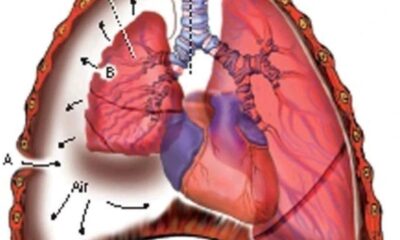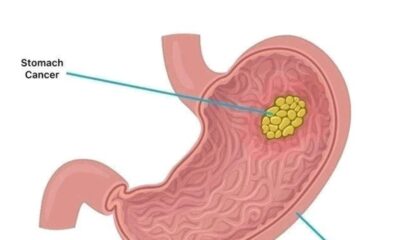Heart disease remains one of the leading causes of death worldwide, and its signs are often misunderstood or overlooked. While most people recognize chest pain and shortness of breath as warning signs, there are several less obvious symptoms that can indicate heart trouble. Being aware of these surprising signs is crucial, as early detection can significantly improve outcomes.
1. Fatigue and Weakness
Persistent fatigue or weakness can be a sign of heart disease, especially in women. It is often mistaken for general tiredness or stress. This fatigue is not the usual tiredness after a long day; it is extreme exhaustion that does not improve with rest. When the heart is unable to pump blood effectively, the body compensates by…Click Here To Continue Reading>> …Click Here To Continue Reading>>
diverting blood away from less vital organs and muscles to maintain blood flow to the heart and brain. This can cause a person to feel unusually weak or fatigued, even if they have not exerted themselves.
2. Swelling in the Legs, Ankles, or Feet (Edema)
Swelling in the lower extremities is another subtle sign of heart disease. When the heart is not pumping blood effectively, blood can back up in the veins, causing fluid to accumulate in the tissues. This can lead to swelling, known as edema. People may notice their shoes feel tighter or that they have sock marks on their legs that do not fade quickly. Edema can be a sign of heart failure, especially if it occurs in conjunction with other symptoms like shortness of breath or fatigue.
3. Dizziness or Lightheadedness
Feeling dizzy or lightheaded can be a symptom of heart disease, particularly if it occurs frequently or without an apparent cause. This can happen because of reduced blood flow to the brain, which may result from a variety of heart conditions, including arrhythmias (irregular heartbeats) or heart failure. While occasional dizziness might be harmless, recurrent episodes warrant medical attention to rule out heart-related issues.
4. Persistent Cough or Wheezing
A chronic cough or wheezing that is not related to a respiratory condition could be a sign of heart disease. This symptom can occur when fluid builds up in the lungs due to heart failure. The cough may be dry or produce frothy, white, or pink-tinged mucus. Some people mistake this symptom for asthma or a lingering cold, delaying necessary cardiac evaluation and treatment. READ FULL STORY HERE>>>CLICK HERE TO CONTINUE READING>>>
5. Jaw, Neck, or Back Pain
Unlike the classic symptom of chest pain, heart disease can sometimes manifest as pain in the jaw, neck, or back. This is more common in women, who may experience heart attacks without the hallmark chest pain. The pain can feel like a squeezing or pressure sensation, and it might come and go. It is important not to dismiss these symptoms as merely muscle pain or a dental issue, especially if they are accompanied by other signs of heart distress.
6. Indigestion, Nausea, or Stomach Pain
Heart disease can sometimes present with gastrointestinal symptoms, such as indigestion, nausea, or stomach pain. These signs are often mistaken for a gastrointestinal issue or food poisoning. However, these symptoms can occur when the heart struggles to pump blood, affecting the digestive system. This is particularly relevant in women, who might experience these symptoms during a heart attack.
7. Sleep Disturbances and Snoring
While sleep disturbances are common, severe snoring or waking up gasping for air may indicate sleep apnea, which is linked to heart disease. Sleep apnea causes repeated interruptions in breathing during sleep, which can increase the risk of high blood pressure, arrhythmias, stroke, and heart failure. Individuals who experience these symptoms should consider undergoing a sleep study and further cardiovascular evaluation.
Conclusion
Many people ignore these surprising signs of heart disease, attributing them to less serious health issues or everyday discomforts. However, recognizing these symptoms and seeking timely medical advice can be lifesaving. Awareness is key; if you or someone you know experiences any of these symptoms, especially if they are persistent or worsening, consult a healthcare professional for a thorough evaluation. Early detection and intervention are crucial in managing heart disease and improving the quality of life.


 METRO9 months ago
METRO9 months ago
 HEALTH & LIFESTYLE10 months ago
HEALTH & LIFESTYLE10 months ago
 SPORTS11 months ago
SPORTS11 months ago
 METRO5 months ago
METRO5 months ago
 METRO9 months ago
METRO9 months ago
 METRO10 months ago
METRO10 months ago
 IN-THE-NEWS11 months ago
IN-THE-NEWS11 months ago
 HEALTH & LIFESTYLE5 months ago
HEALTH & LIFESTYLE5 months ago


